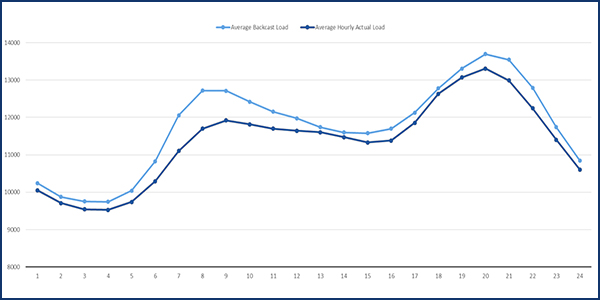ISO-NE is planning to bring staff back to its Holyoke, Mass., headquarters in phases over the summer, CEO Gordon van Welie told the New England Power Pool Participants Committee on Thursday.
The RTO has had 95% of its workforce working remotely because of the COVID-19 pandemic since March 14, with remote deployment to continue through at least June 1, and is paying special attention to the health of crews for the two control centers, van Welie said.
ISO-NE has some questions about President Trump’s May 1 executive order banning “any acquisition, importation, transfer or installation of any bulk power system electric equipment” controlled by or involving any foreign country or person, van Welie said. (See Trump Declares BPS Supply Chain Emergency.)
The order directs the energy secretary within 150 days to “publish rules or regulations implementing the authorities delegated.”
In response to stakeholder questions, van Welie said nothing in the order has the RTO concerned, but he noted the need to live with uncertainty during the Energy Department’s 150-day period for ruling on imported equipment that might fall under the ban of such critical energy infrastructure.
Pandemic Load Factors
ISO-NE created a “backcast” model to provide a baseline of what loads should have been absent the pandemic, COO Vamsi Chadalavada said.
“The backcast is for March 1 to April 28, so that’s about 59 days, and we’ve built a composite of what a load curve would look like by averaging every hour of those 59 days,” Chadalavada said.
[Note: Although NEPOOL rules prohibit quoting speakers at meetings, those quoted in this article approved their remarks afterward to clarify their presentations.]
“It’s interesting to see how those societal actions are reflected in a daily load profile … a slower morning ramp, a later morning peak; mid-day loads are lower, evening peaks are lower, and the transitions to night loads are less steep,” he said.
The RTO continued to observe approximately 3 to 5% lower loads in April, and there has been an approximately 6% reduction in average load when comparing this year to last, he said.
The pandemic accounts for up to 5% of the decreased load, but additional energy efficiency and PV installations likely make up a majority of the difference.
“Energy efficiency has been on a steady track in recent years, but PV has picked up lately, so it’s not clear exactly how consistent this contribution to lower load is with historical trends,” Chadalavada said.
Faster Boston RFP
The RTO’s competitive transmission solicitation for Boston garnered 36 proposals from eight qualified parties by the March 4 deadline. With the evaluation process moving faster than expected, stakeholders will see the early cut in July rather than August.
“I know there’s been a lot of interest in the responses that we’ve received for the Boston [request for proposals], and in the volume, and the range of dollars, and the timelines,” Chadalavada said.
The RTO is confident that some proposals in the phase one study process are going to be available for New England ahead of June 1, 2024, the current retirement date for Mystic 8 and 9, he said.
“I think we had left you with an expectation that we will be sharing with all of you those proposals that move from phase one to phase two at the end of August,” he said. “We are going to be able to do that in July, so it’s at least going to be an acceleration of up to four weeks, but that doesn’t mean we’re stopping there. If we continue to make the progress that we are, we could maybe even be sooner in front of you with those proposals.”
Summer Meeting to be Virtual
The Participants Committee’s Summer Meeting will be held virtually June 23 because of the coronavirus pandemic. There will be an online “Future Grid” educational session on June 24. More information will be released as plans are finalized, NEPOOL said.
Consent Agenda
The PC on its consent agenda approved a revision to Operating Procedure 14 (OP-14) related to technical requirements for generators, demand response resources, asset-related demands and alternative technology regulation resources.
The PC also approved clean-up changes and enhancements to the RTO’s billing policy, which were raised in conjunction with certain clean-up changes to the ISO-NE Financial Assurance Policy that are still under review by the NEPOOL Budget and Finance Subcommittee. The subcommittee discussed the changes during its March 26 and April 21 teleconferences, and no members objected to the changes.
Litigation Report
NEPOOL Secretary David T. Doot’s monthly litigation included several items of note, starting with the RTO’s filing of its Energy Security Improvements (ESI) market design with FERC on April 15, for which the commission has set a May 15 comment deadline date (ER20-1567).
The second item was a technical conference on combined or hybrid resources to be held at FERC on July 23, focusing on a generation resource paired with storage.
The third item concerned the New England Ratepayers Association (NERA) filing of a petition for declaratory order on April 14 asking FERC to outlaw net metering for rooftop solar generation.
NERA argues that the commission has exclusive federal jurisdiction over wholesale energy sales from generation sources located on the customer side of the retail meter. The commission on May 4 extended the deadline for comments in the dispute over net metering until June 15 (EL20-42). (See related story, FERC Extends Deadline in Net Metering Dispute.)
Another litigation item concerned a request that FERC convene a technical conference on the topic of carbon pricing, with the filing giving people until May 21 to submit comments.
The final item was ISO-NE’s Inventoried Energy Program (Chapter 2B) proposal, for which a federal court granted FERC’s motion to suspend briefing and for voluntary remand, directing parties to file status reports at 90-day intervals beginning July 20. (See “OKs Early EIP Sunset,” ISO-NE Sending 2 Energy Security Plans to FERC.)





